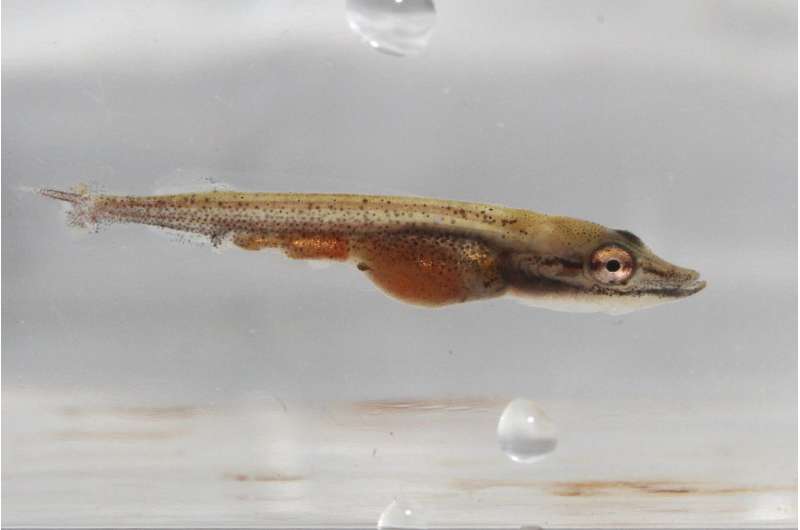Tolerance to saltwater and freshwater is key to survival

According to Charles Darwin the ability to adapt to new conditions is essential for survival of species. The capacity to cope with altered conditions is becoming increasingly important in the face of climate change. New evidence on salt water tolerance in spawning migrating pike from the Baltic Sea, published in the journal Scientific Reports, suggests that not being adapted to specific local environments may promote persistence in an uncertain, rapidly changing world.
Pike is a widely distributed, long-lived and large keystone predatory fish species that breeds annually after becoming mature. In the Baltic Sea, some pike display homing behaviour and repeatedly migrate to spawn in the same freshwater stream or river outlet where they were once born. After hatching the juvenile pike fry spend a few weeks in the spawning environment before emigrating to the brackish water coastal areas of the Baltic Sea, where they spend most of their life feeding and growing.
Scientists from Linnaeus University in Sweden studied how populations that utilize different spawning sites with contrasting salinity regimes performed under a range of different salinities. The researchers first caught mature pike from two anadromous populations at the time of spawning. Eggs were then incubated and embryos reared in a salinity gradient in the laboratory. Results showed that the variation in tolerance of juvenile pike reflected the differences in salinity regimes between their natural spawning sites.
The study also indicates that adaptation to a certain stable salinity may come at the cost of a poorer ability to cope with temporal environmental change. The population naturally spawning in the stable freshwater habitat showed signs of specialization for freshwater spawning. The population exposed to fluctuating selective pressure in a spawning area with occasional brackish water intrusions tolerated higher salinities on average, and performed reasonably well over a range of different salinities. These findings indicate that populations and species that are well adapted to specific local conditions may be at greater risk when exposed to challenges associated with unstable or novel conditions.
Altered salinity regimes constitute a potential threat not only to pike in the Baltic Sea. Ongoing climate change affects hydrogeography, water temperatures, sea level anomalies, and salinity in coastal areas worldwide. Salinity is known to play an important role in defining the distribution of many aquatic organisms. In the future, fish species throughout the world will therefore likely face problems similar to those currently experienced by the pike populations in Sweden.
More information: Johanna Sunde et al. Variation in salinity tolerance between and within anadromous subpopulations of pike (Esox 1ucius), Scientific Reports (2018). DOI: 10.1038/s41598-017-18413-8
Journal information: Scientific Reports
Provided by Linnaeus University




















